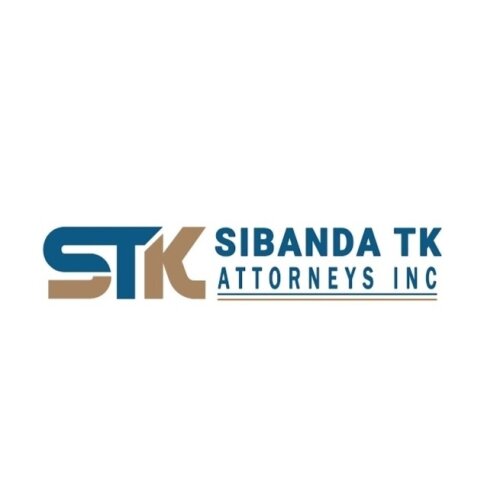Best Real Estate Lawyers in Kwamhlanga
Share your needs with us, get contacted by law firms.
Free. Takes 2 min.
Free Guide to Hiring a Real Estate Lawyer
List of the best lawyers in Kwamhlanga, South Africa
South Africa Real Estate Legal Questions answered by Lawyers
Browse our 3 legal questions about Real Estate in South Africa and read the lawyer answers, or ask your own questions for free.
- Request for Consultation – Property Dispute and Unlawful Actions by Landlord
- Dear Attorney, I am seeking legal assistance regarding a property dispute currently before the Johannesburg Magistrate’s Court. The Plaintiff has issued summons against me for alleged arrears and eviction. However, prior to the summons, the landlord engaged in a series of unlawful actions between August and October 2025, including: •... Read more →
-
Lawyer answer by Botha Bezuidenhout Attorneys Inc
You are entitled to institute a counterclaim for damages suffered. You are welcome to visit our website for contact information or to book a consultation.
Read full answer - Landlord can he charge extra for visitors
- This is a caravan park on a farm, but the landlord also said we could build a building to live in instead of a caravan/ tent. If we do that we must pay for the building each building is a different price it depended on it size which we paid... Read more →
-
Lawyer answer by mohammad mehdi ghanbari
Dear Sir/Madam, Thank you for explaining your situation in such detail; from what you describe there are several possible legal issues, including the terms of your agreement about the building and monthly fee, the new charge for your children to...
Read full answer - Landlord harssing me
- I recently moved out where I stayer because For 5 years nothing was fixed, eligal elictricity meters were installed hardly had water was treated like shit. I moved without notice cause I was tired off al this shit. No the landlord is harassing me at work wanting money for the... Read more →
-
Lawyer answer by mohammad mehdi ghanbari
Hello, good morningBased on the information you've provided, it appears your landlord may have violated several of your rights as a tenant. You may have grounds for a "constructive eviction" claim, and the landlord's current actions could be considered harassment.Your...
Read full answer
South Africa Real Estate Legal Articles
Browse our 2 legal articles about Real Estate in South Africa written by expert lawyers.
- South African Residential Rental Laws for Foreign Owners
- Non-resident landlords must strictly adhere to the Prevention of Illegal Eviction from and Unlawful Occupation of Land Act (PIE Act) and the Rental Housing Act to avoid legal penalties. Security deposits must be placed in a separate interest-bearing account, with interest accruing for the benefit of the tenant. Illegal "self-help"... Read more →
- How to Transfer Property in a South African Deceased Estate
- Inherited property in South Africa is exempt from Transfer Duty, but the estate may still be liable for Estate Duty if the total value exceeds R3.5 million. No property can be sold or transferred until the Master of the High Court issues formal Letters of Executorship to the appointed representative.... Read more →
About Real Estate Law in Kwamhlanga, South Africa
Real estate in Kwamhlanga, a town situated in the Mpumalanga province of South Africa, operates under the wider framework of South African property law. Whether you are interested in purchasing, selling, leasing, or developing land, it is crucial to understand the legal requirements and processes involved. Real estate transactions in Kwamhlanga commonly involve private individuals, businesses, and government bodies, each with specific rights and responsibilities under the law. The region includes both urban and rural properties, with most land dealings subject to national legislation but also to local municipal regulations and customary law where applicable.
Why You May Need a Lawyer
Engaging a lawyer in real estate matters can help you avoid common pitfalls and ensure your interests are protected. Situations where you may require legal help include:
- Buying or selling property - to review or draft contracts and ensure proper transfer of title
- Resolving disputes over land ownership or boundaries
- Dealing with mortgage registration or cancellation
- Handling inheritance or deceased estates involving property
- Assistance with land development, rezoning, or subdivision applications
- Negotiating and drafting lease agreements for residential, commercial, or agricultural purposes
- Navigating eviction processes or protecting tenant rights
- Dealing with expropriation or land claims
Property transactions involve substantial financial and legal responsibility, so consulting a qualified legal professional is wise at almost every stage.
Local Laws Overview
While South African property law forms the foundation of real estate dealings in Kwamhlanga, several local factors and legal frameworks are at play:
- Deeds Registry Act: All property sales are registered with the Deeds Office, ensuring the rightful transfer of title and recording liabilities such as bonds.
- Municipal By-laws: Kwamhlanga property owners must adhere to Emalahleni Local Municipality by-laws regarding zoning, rates, building regulations, and land use.
- Sectional Titles Act: Applies to properties established as sectional title units, such as townhouses and flats, governing the management and transfer of these properties.
- Customary Law: In rural areas, land may be owned or administered under traditional leadership; separate rules may apply, especially concerning inheritance and communal use.
- Land Claims and Restitution: Certain properties may be affected by unresolved land claims under the Restitution of Land Rights Act, often requiring additional legal scrutiny.
- National Credit Act: If you are financing your property purchase through a loan, this law governs lending practices and borrower protection.
Given the various laws and local factors, legal guidance is highly recommended to navigate complexities unique to Kwamhlanga real estate.
Frequently Asked Questions
What steps are involved in buying property in Kwamhlanga?
Generally, the process involves finding a suitable property, signing a sale agreement (usually prepared by a lawyer or estate agent), completing due diligence, paying a deposit, arranging for bond finance if needed, and registering the transfer with the Deeds Office.
Can foreigners buy property in Kwamhlanga?
Yes, foreigners are generally allowed to buy property in South Africa, including Kwamhlanga. However, there may be additional requirements, such as clearance from the South African Reserve Bank for certain transactions.
What is the cost of buying property besides the purchase price?
Additional costs include transfer duty (a form of tax), legal fees, Deeds Office registration fees, municipal rates clearance, and if financed, bond registration costs.
How can property disputes be resolved?
Most disputes can be resolved through negotiation or mediation. However, more complex or unresolved matters may require litigation in court or arbitration, depending on the nature of the dispute.
Do I need a lawyer to draw up a lease agreement?
While not legally mandatory, using a lawyer to draft or review a lease agreement is highly advisable to ensure clarity, legal compliance, and protection of your rights.
What should I check before signing a sale agreement?
Ensure the property is free from encumbrances (such as outstanding debts or restrictions), verify the seller's ownership, confirm compliance with zoning and building regulations, and understand all terms and conditions before you sign.
What happens if a deceased person owned the property?
The property forms part of the deceased’s estate and can only be transferred once the estate is wound up by the executor, following the rules of the Administration of Estates Act and any applicable customary law.
Are there risks of buying agricultural or rural land?
Yes; such land may be subject to communal rights, unresolved land claims, or traditional authority control. It’s essential to conduct thorough due diligence and seek advice regarding land use restrictions and transferability.
How can I find out if a property has outstanding municipal rates or bills?
Before transfer, a rates clearance certificate from the local municipality is required, confirming all municipal accounts are settled. Your lawyer will typically obtain this certificate as part of the transfer process.
Is it possible for someone to lose property due to someone else's debt?
Generally, you cannot lose your property for another person’s debt unless you acted as a guarantor or the property is jointly owned. However, always check with a lawyer, especially in joint ownership situations or if the property forms part of a deceased estate.
Additional Resources
For further information or assistance, consider the following organizations and bodies:
- Emalahleni Local Municipality - handles property rates, zoning, and clearance certificates
- Department of Rural Development and Land Reform - information on land rights and claims
- South African Deeds Office - property registration and title searches
- Law Society of South Africa - directory of qualified property attorneys and legal practitioners
- Estate Agency Affairs Board - regulates estate agents and provides complaint procedures
- Community Advice Centres - local organizations sometimes offer free or low-cost legal advice
Next Steps
If you require legal assistance with a real estate matter in Kwamhlanga, consider the following steps:
- Assess your situation and note down all relevant details and documentation (e.g., agreements, correspondences, title deeds).
- Identify what specific legal advice you need: buying, selling, inheritance, dispute resolution, etc.
- Consult with a qualified attorney with experience in South African property law. You can find one through referrals, the Law Society of South Africa, or local directories.
- Prepare a list of questions and concerns before your consultation to ensure your needs are addressed.
- Follow the professional advice given, and ensure all transactions and agreements are documented and legally compliant.
Remember, addressing real estate matters with the correct legal guidance from the outset can save time, money, and significant stress in the long run.
Lawzana helps you find the best lawyers and law firms in Kwamhlanga through a curated and pre-screened list of qualified legal professionals. Our platform offers rankings and detailed profiles of attorneys and law firms, allowing you to compare based on practice areas, including Real Estate, experience, and client feedback.
Each profile includes a description of the firm's areas of practice, client reviews, team members and partners, year of establishment, spoken languages, office locations, contact information, social media presence, and any published articles or resources. Most firms on our platform speak English and are experienced in both local and international legal matters.
Get a quote from top-rated law firms in Kwamhlanga, South Africa — quickly, securely, and without unnecessary hassle.
Disclaimer:
The information provided on this page is for general informational purposes only and does not constitute legal advice. While we strive to ensure the accuracy and relevance of the content, legal information may change over time, and interpretations of the law can vary. You should always consult with a qualified legal professional for advice specific to your situation.
We disclaim all liability for actions taken or not taken based on the content of this page. If you believe any information is incorrect or outdated, please contact us, and we will review and update it where appropriate.
Browse real estate law firms by service in Kwamhlanga, South Africa
Kwamhlanga, South Africa Attorneys in related practice areas.









